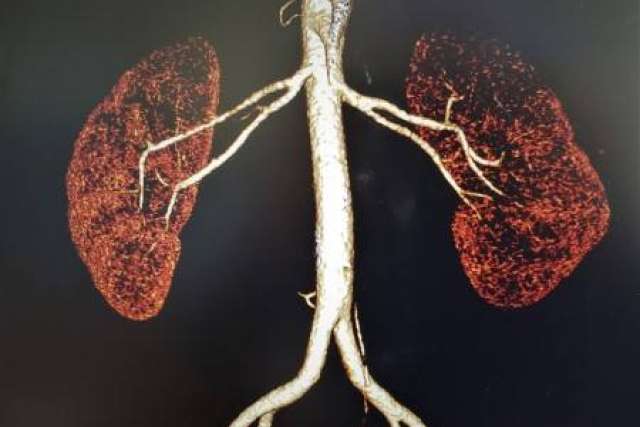UCLA Health’s Kidney Transplant Program performed more transplants than almost any other health care center in the country, according to rankings issued by the Organ Procurement and Transplantation Network of the U.S. Department of Health & Human Services.
UCLA Health performed 421 kidney transplants in 2021, the third highest total in the nation.
But the UCLA medical team isn’t thinking about rankings, says H. Albin Gritsch, MD, surgical director of the UCLA Health Kidney Transplant Program. Along with medical directors Gabriel Danovitch, MD, and Patricia Weng, MD, the team’s sole focus is serving those in need.
“We just put our head down and keep pushing and see where we end up,” Dr. Gritsch says of the rankings.
He actually would like to do even more transplants each year, he says, in light of the 600 or so patients UCLA evaluates annually for the procedure.
The wait for donor organs is long in a densely populated area such as Southern California, Dr. Gritsch says. That reality has inspired innovative efforts, such as UCLA Health’s kidney voucher program, and scientific breakthroughs including “virtual crossmatching,” which allows for tissue testing that ensures a donor organ is well-suited for its intended recipient.

“Our numbers have been increasing because there’s a greater appreciation for the fact that we have to do something to shorten the waiting time,” he says. “Just given the number of people that are on the waiting list in Southern California, compared to the number of donors, it takes longer.”
Still, UCLA Health has been able to accomplish an incredible number of kidney transplant surgeries, even during the pandemic.

“There were quite a few kidneys that became available that other centers were not able to accept because they didn’t have the infrastructure that we had at UCLA to cope with all the challenges,” Dr. Gritsch says.
UCLA Health has a long history in transplant science and practice. Such vast institutional knowledge, combined with interdisciplinary cooperation between departments, doctors and scientists, allows for outstanding patient outcomes, he says.
“What makes UCLA special is the very tight collaboration we have amongst physicians and surgeons across the board,” he says. “Our whole infrastructure lives and breathes transplants because it’s so common here.”
This level of expertise also allows the transplant team to take on patients with complex medical conditions that can’t find treatment elsewhere, he says.
Scientific advances continue to push organ transplantation forward. Better antiviral drugs and anti-rejection medication are making individuals and organs once considered sub-optimal into successful transplant candidates, Dr. Gritsch says.
UCLA Health is also advancing tolerance transplants, where organ recipients receive donor stem cells to prime their immune systems to recognize, rather than reject, the transplanted kidney, thus liberating them from lifelong immunosuppression drug regimens.
“The field of transplantation is very progressive,” Dr. Gritsch says. “That’s what’s been so rewarding and exciting for me. I’ve lived at a time when the field of transplantation has changed quite a bit, and really to the benefit of thousands of people who now have a kidney transplant.”
Find out more about the UCLA Health Kidney Transplant Program.





